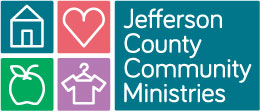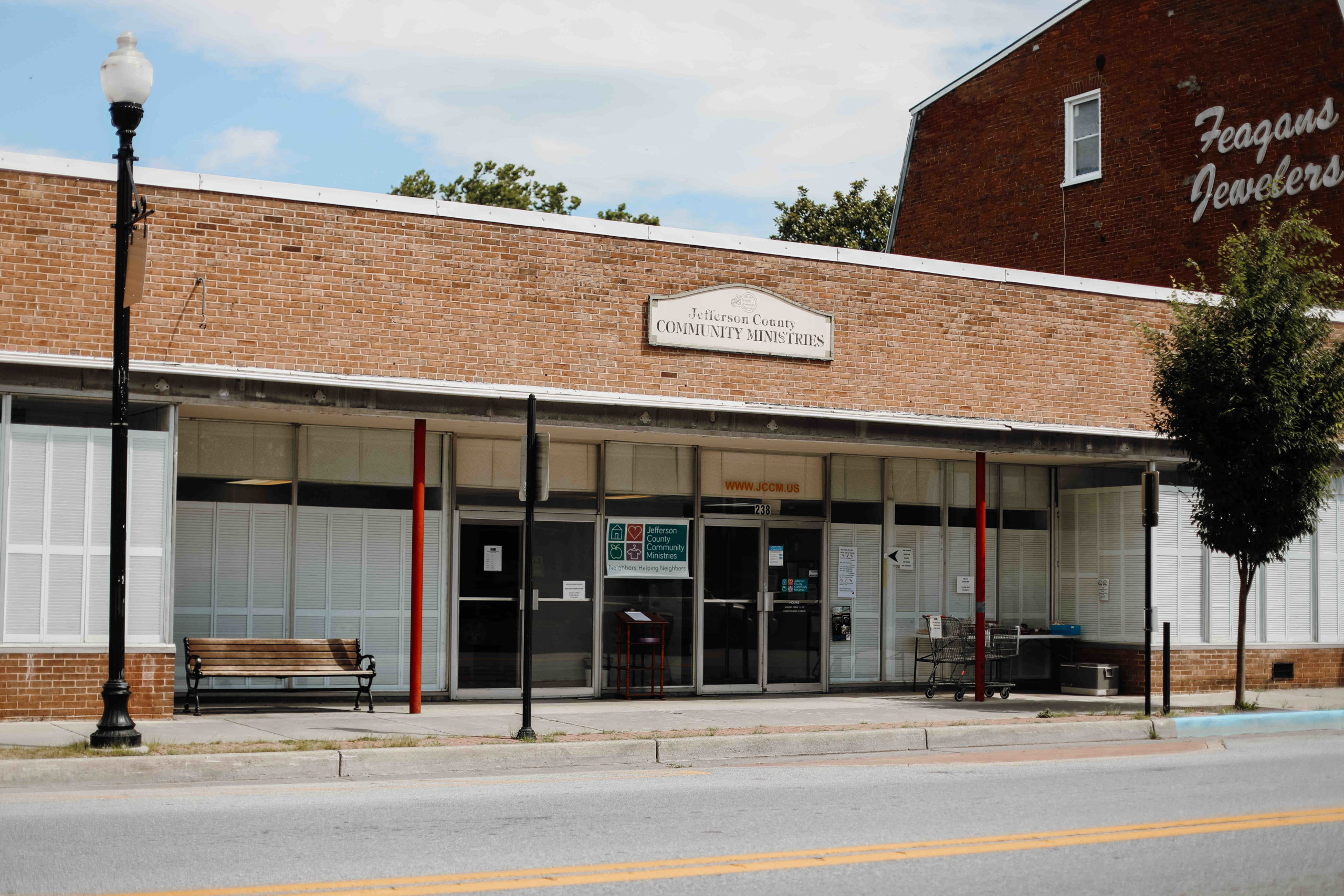Some years ago, when we first began writing newsletters, one of the things we learned is that even though we have existed since 1983 and have been in downtown Charles Town since 2000, not many people knew much about us. Our motto for a time was Jefferson County’s Best Kept Secret. We seem to be known more by our bits and pieces rather than what we do in the big picture. Our guiding principle is for all clients to be treated with unconditional acceptance, dignity, mercy, and grace. Thus, we strive to ensure that everyone is welcomed and treated kindly.
JCCM has grown not only in covenant members, but also in the services we provide to the community. We began primarily with food and clothing, but over time we have seen the need for new and improved services.
Intake continues to be the heartbeat of JCCM’s service. The task of Intake staff is to begin a relationship with each client in order to understand how best to meet both needs and personal goals. This critical process of building trust may take multiple visits as we guide clients with financial needs such as help with a utility bill; fuel for cooking, heating, or driving; medications; public transportation; food, clothing, and housing. Currently Intake sees about 1200 clients a year, including 350 families.
The Food Pantry continues to provide food for short-term emergencies as well as for long-term care needs. We partner with other agencies to ensure that dated food stuffs are not wasted. On average we receive 150,000 pounds of donated food annually and distribute almost the same amount. As each season brings different pantry needs, we send out weekly emails informing interested parties what they might contribute. Currently we serve about 280 individuals and 132 families per month.
The Clothing Closet has grown and adapted to fill the varying needs of our clients. We distribute approximately 700 articles of clothing each year, including coats, shirts, blouses, pants, dresses, socks, undergarments, and shoes. We now have a fully operational laundry room where donated clothing is cleaned, dried, and folded. If we receive clothing in excess of our needs, we share items with partner organizations throughout Jefferson and Berkeley Counties.
The Cold Weather Shelter is now a permanent part of our services from November to the end of March. We work hand-in-hand with our member churches as they provide space and volunteers, and we provide permanent staff and supplies. On average, five clients per night utilized the sixteen-bed shelter this past year. Numbers were down this season, and none were turned away except for fighting with other clients.
Day Programs provide encouragement, work experience, and confidence-building for those seeking to improve themselves. These programs include Jobs Initiative, Good Neighbor Academy, Life Skills, and Safe Space. Community partners provide budgeting and financial management classes, temporary work assignments at minimum wage, and neighborhood clean-up work throughout Jefferson County. We currently average 10 clients monthly in our Day Programs. Additionally, through our Volunteer Income Tax Assistance program, our partners completed 109 client tax returns, totaling Federal refunds of $118,500!
Health Care is another of our concerns. In partnership with West Virginia University Health and Shenandoah Community Health, we are finding ways to offer health care to those in need. We arrange for health care visits at our building, in motel rooms, and on the streets. We facilitated COVID vaccinations for the homeless, minority groups, and less served populations. We average twelve medical visits per month with primary care physicians, including pharmaceutical care and psychological counseling.
The Case Management staff are the lifeblood of JCCM service, managing the process by which clients can find solutions to varied challenges. They help with client needs such as financial literacy; procurement of vital documents; applications for Social Security, SNAP, and Medicaid benefits; referrals for outpatient substance abuse treatment; assistance with housing and employment. Case managers also create action plans with clients to increase self-sufficiency. On average Case Management follows 25 clients per month and places two to three homeless clients into permanent rental properties.


Leave a Reply